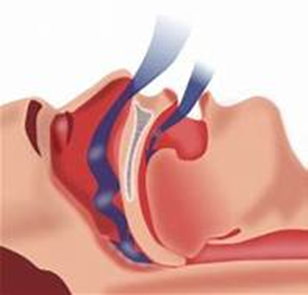A nurse is reinforcing teaching with a client about the use of transcutaneous electrical nerve stimulation (TENS) to manage chronic pain.
Which of the following statements by the client indicates the need for further teaching?
"It's unfortunate that I have to be in the hospital for this treatment.”.
"I wish I didn't have to attach the electrodes to my skin.”.
"I'll need to shave the hair off the skin where I place the electrodes.”.
"I hope I don't have to take as many pain pills.”. .
The Correct Answer is A
Choice A rationale:
The statement, "It's unfortunate that I have to be in the hospital for this treatment," indicates the need for further teaching. TENS therapy is often used as an outpatient treatment and does not require hospitalization. Patients typically receive instructions on how to use TENS units at home.
Choice B rationale:
The statement, "I wish I didn't have to attach the electrodes to my skin," is a common sentiment but does not necessarily indicate a need for further teaching. Attaching electrodes to the skin is a standard part of using TENS therapy, and it's essential for the treatment to be effective. Some patients may find this aspect of treatment uncomfortable or inconvenient.
Choice C rationale:
The statement, "I'll need to shave the hair off the skin where I place the electrodes," is accurate. Shaving the area where electrodes are placed can improve the contact and effectiveness of the TENS therapy. This statement does not indicate a need for further teaching but rather a good understanding of the preparation process.
Choice D rationale:
The statement, "I hope I don't have to take as many pain pills," is a positive sign that the patient understands that TENS therapy can potentially reduce the need for pain medication. It indicates a reasonable expectation for pain management and does not signal a need for further teaching. .
Nursing Test Bank
Naxlex Comprehensive Predictor Exams
Related Questions
Correct Answer is C
Explanation
The correct answer is: C. Decreased energy.
Choice A reason: Hypotension is not typically associated with obstructive sleep apnea (OSA). OSA is more commonly linked with hypertension due to the frequent arousals during sleep that activate the sympathetic nervous system, leading to increased blood pressure.
Choice B reason: Pneumonia is an infection of the lungs and is not a direct consequence of OSA. While OSA can affect the respiratory system, it does not cause pneumonia. However, individuals with OSA may have a higher risk of respiratory infections due to compromised breathing during sleep.
Choice C reason: Decreased energy is a common symptom of OSA. People with OSA experience repeated episodes of partial or complete upper airway obstruction during sleep, leading to disrupted sleep patterns and insufficient rest. This results in daytime sleepiness and fatigue, which are hallmark signs of the condition.
Choice D reason: Thyroid disease, specifically hypothyroidism, can be associated with OSA, but it is not a direct finding of the condition. Hypothyroidism can lead to changes in the soft tissues of the upper airway and contribute to the development of OSA, but it is not a symptom used to diagnose OSA.

Correct Answer is B
Explanation
The correct answer is choice B. "Why do you think your husband needs more medication when he is asleep?"
Choice A rationale:
"Your husband should decide when more medication is needed.” This response is incorrect because it implies that the partner has the authority to decide when the client needs pain medication, which violates the purpose of a PCA pump. A PCA pump is specifically designed for client-controlled pain management, ensuring that the patient, not anyone else, controls when they receive pain medication. Allowing someone else to press the button can lead to overmedication and safety risks.
Choice B rationale:
"Why do you think your husband needs more medication when he is asleep?" This response is correct because it prompts the partner to reflect on their actions and provides an opportunity for the nurse to educate about the proper use of PCA pumps. It addresses the immediate issue without being confrontational and opens the door for further discussion on the importance of client safety and correct PCA use.
Choice C rationale:
"It's a good idea to help make sure your husband can sleep comfortably.” This response is incorrect as it endorses inappropriate and unsafe behavior. It encourages the partner to continue pressing the PCA button, risking the client's safety due to potential overmedication, which can lead to severe complications, such as respiratory depression.
Choice D rationale:
"Next time you think he needs more medication, call me and I'll push the button.” This response is incorrect because it contradicts PCA protocols and removes the control from the client. The nurse is responsible for monitoring the client’s pain and safety, not administering medication upon another person’s request. This approach also increases the risk of dosing errors and undermines the purpose of patient-controlled analgesia.
Whether you are a student looking to ace your exams or a practicing nurse seeking to enhance your expertise , our nursing education contents will empower you with the confidence and competence to make a difference in the lives of patients and become a respected leader in the healthcare field.
Visit Naxlex, invest in your future and unlock endless possibilities with our unparalleled nursing education contents today
Report Wrong Answer on the Current Question
Do you disagree with the answer? If yes, what is your expected answer? Explain.
Kindly be descriptive with the issue you are facing.
